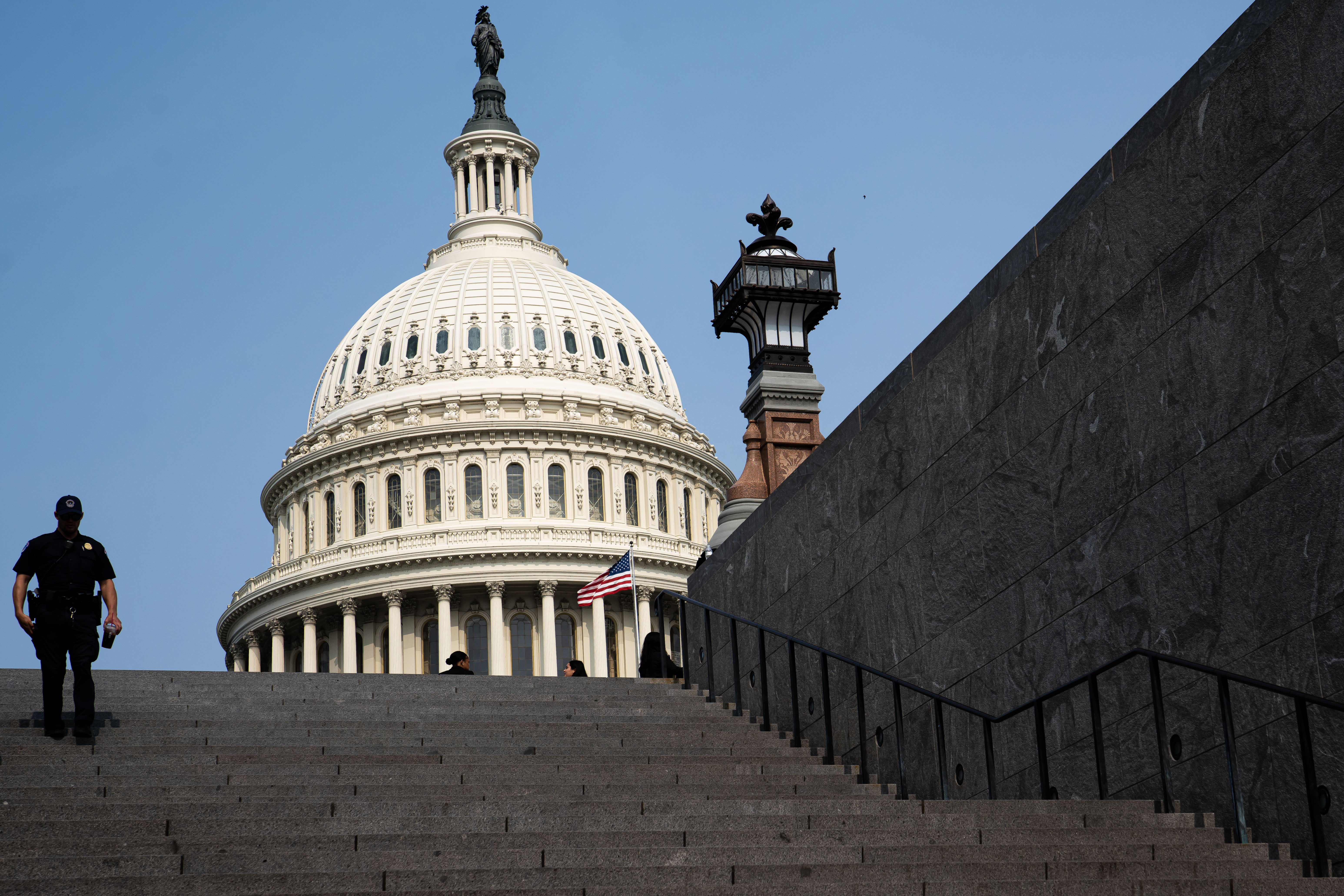Debt ceiling bill passes in the House, advances to the Senate days ahead of default deadline
U.S. Speaker of the House Kevin McCarthy (R-CA) leaves his office in the U.S. Capitol Building on May 30, 2023 in Washington, DC.
Anna Moneymaker | Getty Images
WASHINGTON — A bill to raise the debt limit and cap government spending passed in the House by a wide margin late Wednesday, sending the bill to the Senate just days before Monday’s U.S. default deadline.
The Fiscal Responsibility Act passed 314-117, with support from both Democrats and Republicans.
related investing news


It was a dramatic conclusion to weeks of tense negotiations between the White House and Republican House Speaker Kevin McCarthy.
That drama now moves to the Democratic-controlled Senate, where leaders on both sides want to pass it in 48 hours.
“Neither side got everything it wanted. That’s the responsibility of governing,” President Joe Biden said in a statement immediately after the vote. Biden thanked McCarthy for “negotiating in good faith,” and urged the Senate to pass the bill.
Treasury Secretary Janet Yellen has said federal funds could dry up in the coming days unless lawmakers raise the borrowing limit before next week.
Failure to do so would upset global financial markets, spark job losses in the U.S. and jeopardize vital government benefits for millions of Americans. To prevent what Yellen has called a potential “catastrophe,” congressional leaders will need to win support for the bill in both chambers of a divided Congress.
A SNAP twist
Complicating everything was a surprise finding from the nonpartisan Congressional Budget Office, which released its assessment late Tuesday of the bill’s impact on federal debt and deficits.
The CBO determined that, contrary to Republicans’ stated intent, the bill’s new work requirements for the Supplemental Nutrition Assistance Program (SNAP) would not save any money over 10 years, but would instead actually cost money.
That is because in order to get the White House to agree to new work requirements for able-bodied, childless adults, Republicans agreed to add new exemptions from work requirements for especially vulnerable groups, like veterans and homeless people.
If these exemptions go into effect at the same time as the new work requirements, rather than push people off of food stamps because they fail to meet the work requirements, CBO found that the net effect of the bill will be to enroll an additional 78,000 a month in the program from the exempted categories, like veterans.
Republican party leaders pushed back, and claimed on a hastily arranged conference call that the CBO was incorrectly counting people who were already exempt from work requirements.
But Republican opponents of the bill quickly seized on the CBO finding to argue that the bill betrayed its own conservative principles.
“You can’t make this stuff up… The disastrous Biden-McCarthy deal expands welfare,” Rep. Andrew Clyde, R-Ga., tweeted Wednesday.
The Fiscal Responsibility Act is the result of a deal reached between McCarthy and Biden, which essentially hands conservatives several ideological policy victories in exchange for their votes to raise the debt ceiling beyond next year’s presidential election and into 2025.
Most importantly, the bill would avert a potentially catastrophic U.S. debt default that the Treasury Department said will likely occur next week if Congress does not act to raise the nation’s borrowing limit.
As Biden departed Wednesday for Colorado, he appeared to accept that the fate of the bill was out of his hands.
“God willing, by the time I land, Congress will have acted, the House will have acted, and we’ll be one step closer” to avoiding default, he said. He was close: the House started voting a little more than an hour after the president landed in Colorado.
This is a developing story, please check back for updates.
For all the latest World News Click Here
For the latest news and updates, follow us on Google News.

